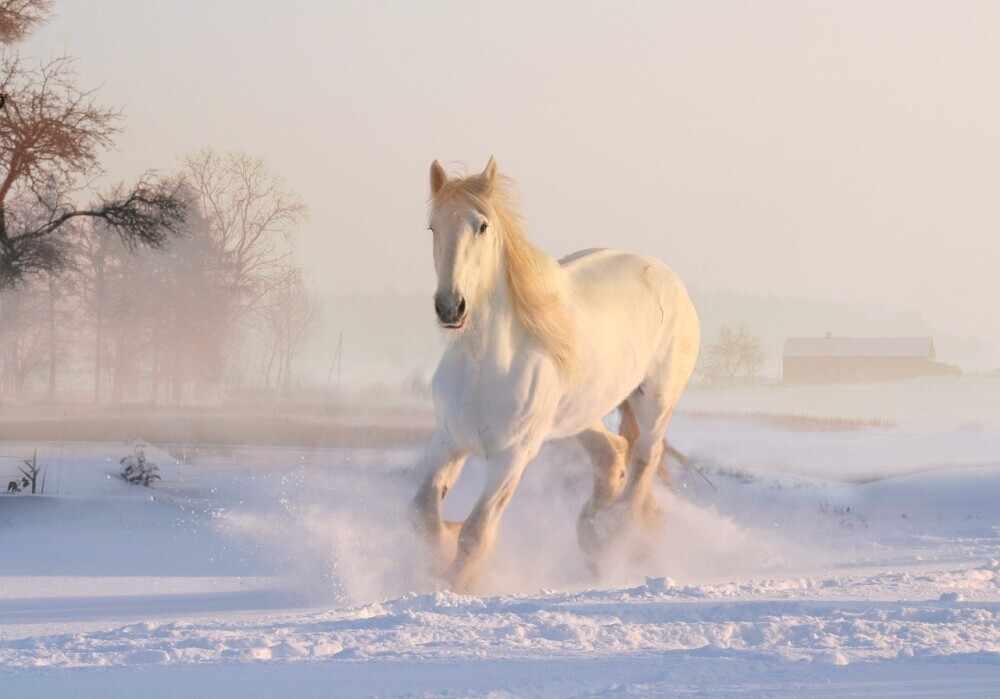
Winter weather has a big impact on how a horse’s body works. Cold temperatures mean their metabolism ramps up to keep warm. That’s a key reason why their diet might need a boost during these chilly months.
There are a few critical nutrients to focus on when it gets cold. Digesting fiber-rich forage, like hay, actually generates heat—a nifty natural heater. Plus, enough calories are important to maintain body weight and provide the energy to move around in frosty weather.
Protein is still crucial even when it’s cold. It keeps their coat healthy and supports muscle maintenance. Don’t skimp on vitamins and minerals either—they help with everything from energy production to immune support, which is vital when the weather gets harsh.
Signs your horse isn’t getting what they need can sometimes be subtle. Watch for weight loss, lack of energy, or a dull coat. These can all signal that their winter diet needs a second look. Paying attention to these cues ensures they stay healthy and happy even when the temperatures drop.
Crafting the Ideal Winter Diet Plan for Horses

Quality forage, such as hay, is the backbone of a horse’s winter diet. It not only provides essential nutrients but also helps generate internal heat during digestion. It’s crucial to ensure the hay is of high quality and free from mold or dust to prevent respiratory issues.
In addition to forage, supplements and concentrates play a vital role in a balanced winter diet. Depending on the individual horse’s needs, grains and commercial feeds can supply additional energy. It’s best to consult with a veterinarian or equine nutritionist to tailor these additions.
Feeding routines should consider the horse’s specific needs: their age, workload, and current body condition. Smaller, more frequent meals can aid digestion and ensure steady energy levels. This approach prevents overeating and supports digestion, which is particularly important during the colder months when horses may be less active.
Practical Tips for Monitoring and Adjusting a Horse’s Diet Throughout Winter

Keeping an eye on a horse’s condition is key. Regularly check their body condition score by feeling their ribs and overall body fat. If they start losing weight, it might be time to increase their feed. Alternatively, if they seem to be gaining too much, cutting back a bit may be necessary.
Hydration is often overlooked in the winter, but it’s crucial. Encourage drinking by making sure their water supply doesn’t freeze. Some horses drink more willingly if the water is slightly warmed or flavored with a touch of salt to stimulate thirst.
Digestive issues can be more common in cold weather, so prevention is a priority. Provide plenty of forage to keep their guts working smoothly and consider digestive supplements if needed.
Finally, keeping a consistent feeding schedule helps maintain their digestive health and overall stress levels, as horses thrive on routine. Regularly observe their eating habits and stool consistency to catch any changes early.

